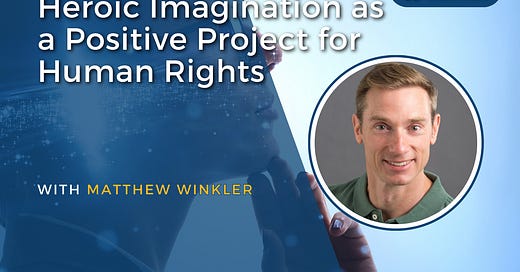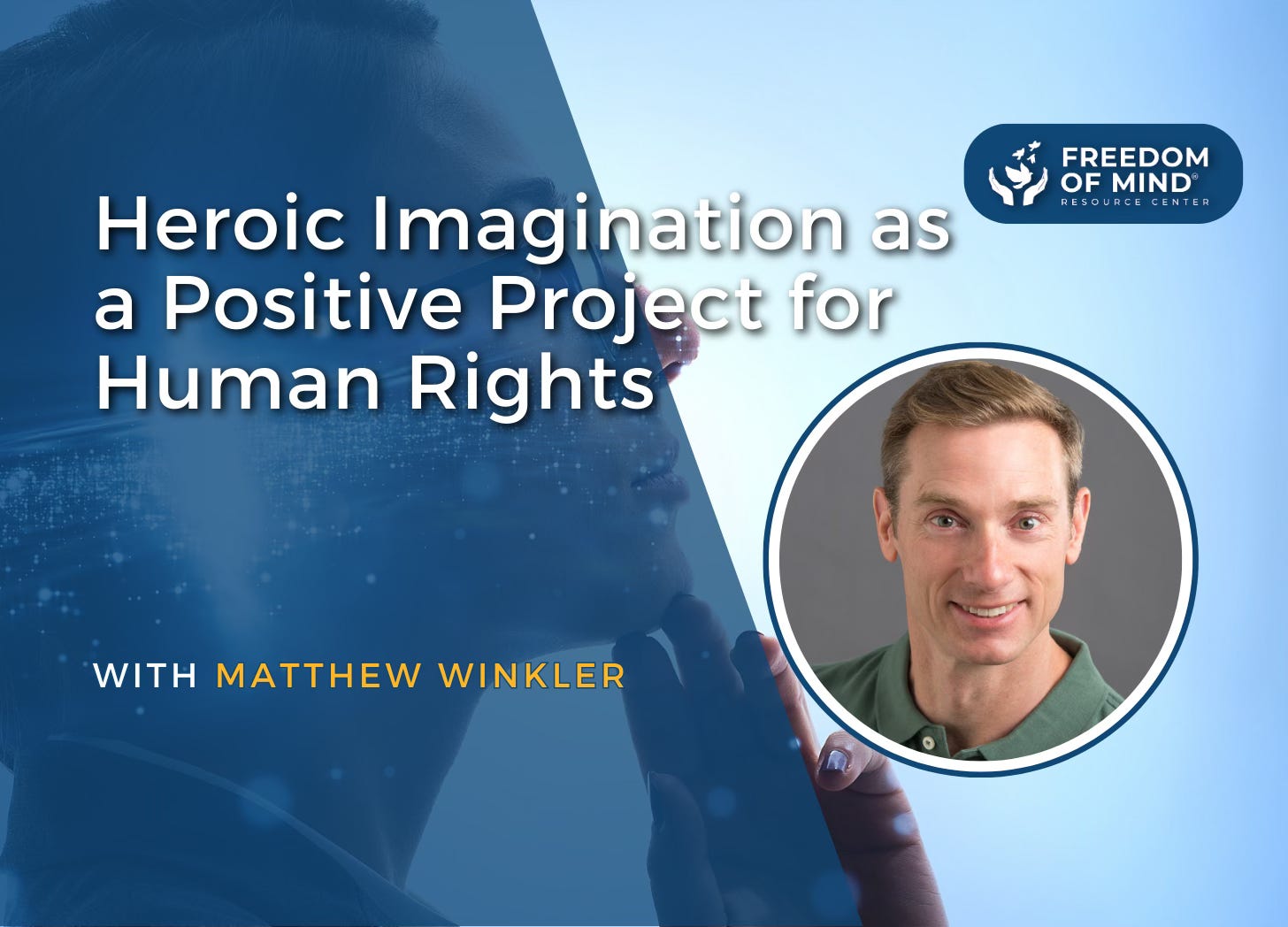I recently had the pleasure of interviewing Matthew Winkler for my podcast, The Influence Continuum. Winkler is the Program Manager for the Heroic Imagination Project (HIP), which provides training for individuals and groups using groundbreaking scientific research and experiential training workshops. He has taught and mentored teens and young adults in middle schools, high schools, and colleges in New York, New England, China, and Japan. He produced a TED-Ed video, “What Makes a Hero,” that went viral and became the foundation of his book, Mentoring Teenage Heroes: The Hero’s Journey of Adolescence.
Keep reading with a 7-day free trial
Subscribe to Dr. Steven Hassan to keep reading this post and get 7 days of free access to the full post archives.





